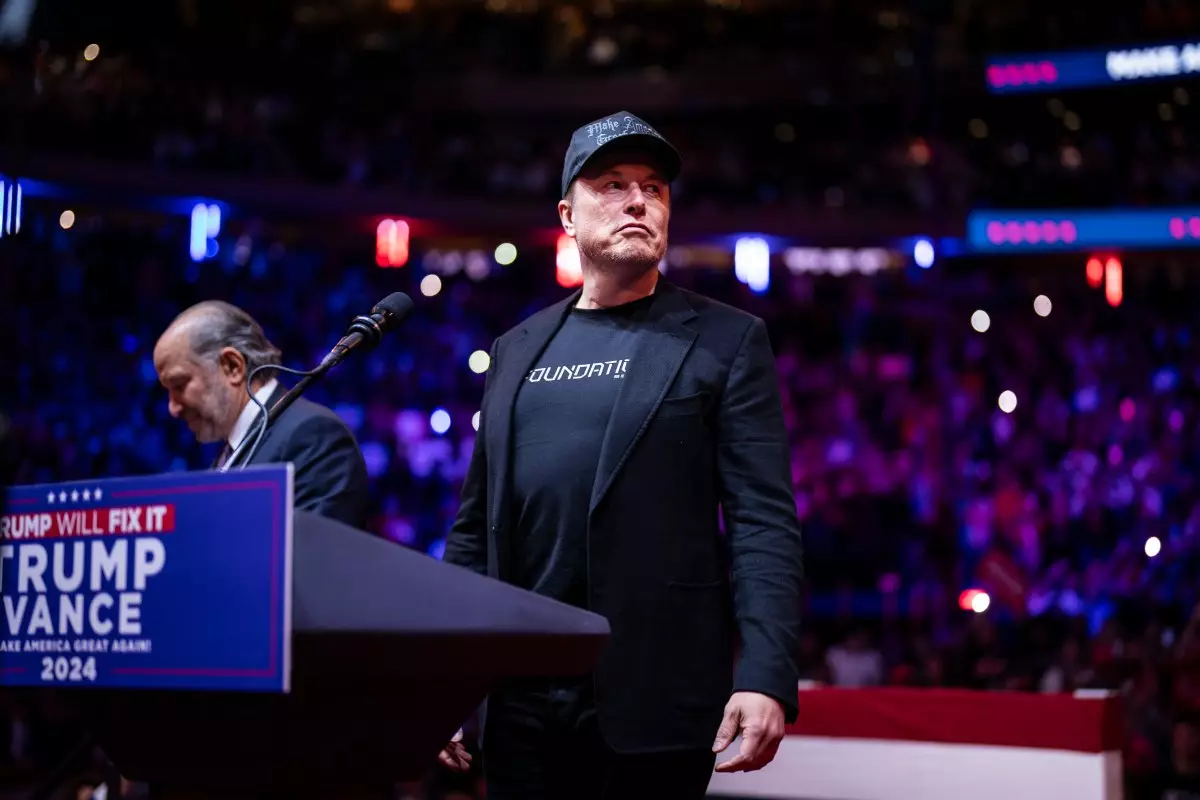Elon Musk, the renowned entrepreneur, has recently made headlines regarding the popular social media platform TikTok, asserting that he has no immediate intention to acquire the app. During an interview at the WELT Economic Summit, held on January 28, Musk addressed various topics, including the potential acquisition of TikTok amid speculation following a delay in regulatory actions from former President Donald Trump. While the political landscape indicated that there might be a path to a deal involving Musk or other high-profile allies, such as Oracle’s Larry Ellison, Musk firmly stated, “I have not put in a bid for TikTok.” His remarks bring to light the complexities involved in such acquisitions in today’s politically charged environment.
Musk’s dismissal of any TikTok acquisition plans cannot be viewed in isolation. The backdrop of this discussion includes Trump’s controversial stance on ByteDance, the parent company of TikTok, which had faced scrutiny and potential restrictions due to national security concerns. Musk’s public disinterest raises questions about the future of TikTok, particularly in the U.S. market, where regulatory hurdles and geopolitical tensions have complicated its existence. The Chinese government had displayed a willingness to consider negotiations, emphasizing that the app’s future remains uncertain amidst the shifting political landscape.
In the interview, Musk elaborated on his philosophy regarding technology and social media algorithms, even as he acknowledged his limited familiarity with TikTok itself. He expressed a more reflective perspective, emphasizing the importance of evaluating the app’s underlying algorithm for its societal impact. “I guess I would look at the algorithm and try to decide: How helpful or useful is this algorithm? And what can we do to shift the algorithm to be more productive and ultimately be beneficial to humanity?” This thoughtful engagement with technology distinguishes Musk from many entrepreneurs who prioritize market capture over ethical considerations.
Musk’s acquisition of Twitter, now rebranded as X, stands out as an outlier in his business approach. He has typically focused on creating entities from the ground up, such as Tesla and SpaceX. By referring to his Twitter buyout as an “anomaly,” Musk highlights his preference for innovation rather than acquisition, indicating a thoughtful engagement with the companies he leads. This positioning places Musk in a unique category among tech moguls, who often pursue mergers and acquisitions for growth and market dominance.
Implications for Future Social Media Dynamics
Musk’s insights on TikTok and his commitment to developing technology that serves humanity could reflect a broader shift in how tech leaders approach social media platforms. As users and regulators grapple with data privacy, algorithm transparency, and ethical technology use, Musk’s perspective suggests that future acquisitions and innovations will require careful consideration of their potential societal impacts. His comments underscore a pressing need for dialogue on the responsibility that tech companies have toward users in an era defined by instant information and pervasive connectivity.
While Elon Musk’s current stance on TikTok acquisition remains clear – he is not pursuing it – the implications of his insights extend far beyond TikTok, prompting a reevaluation of how technology firms align their missions with larger societal goals.

